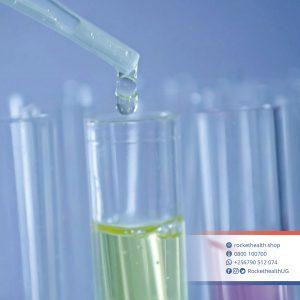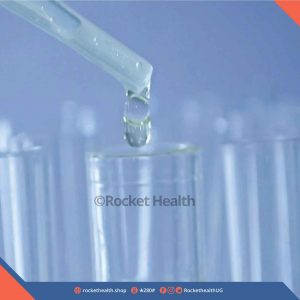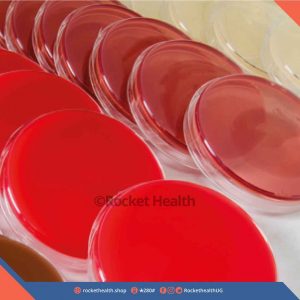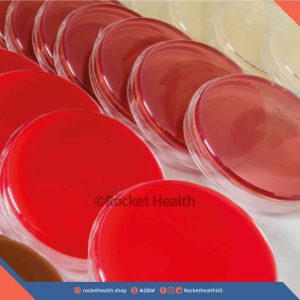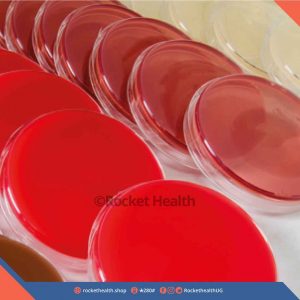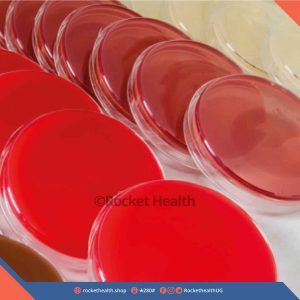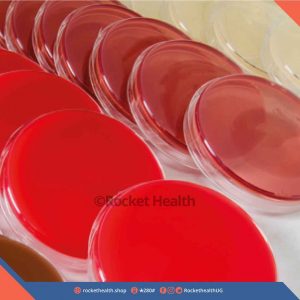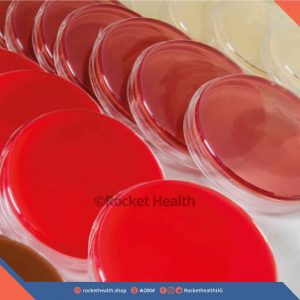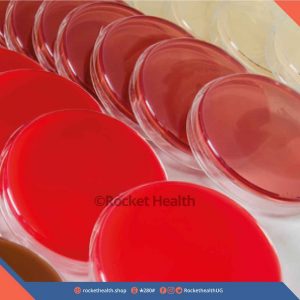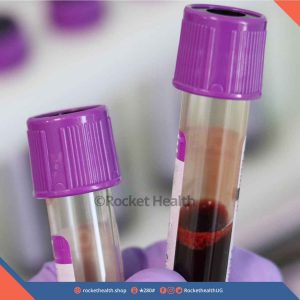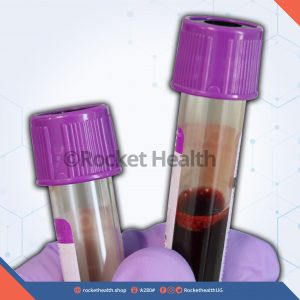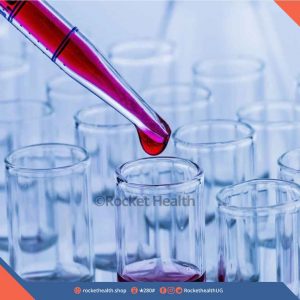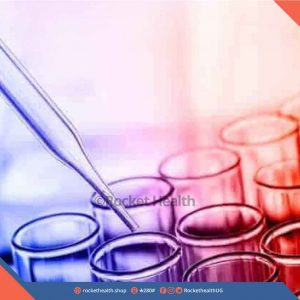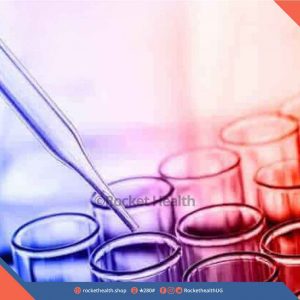No products in the cart.
GENE-XPERT
The Gene-xpert test is a molecular test for diagnosis of TB by detecting the presence of TB bacteria, as well as testing for resistance to Tuberculosis drugs.
Sputum.
Early morning samples are preferred.
5 working days.
An MTb nucleic acid amplification test used to accurately and rapidly diagnose Tuberculosis (TB). Gene X-pert is catridge-based nucleic acid amplification test for simultaneous rapid TB diagnosis and antibiotic sensitivity testing. It is an automated rapid diagnostic test that detects the presence of Mycobacterium tuberculosis (The cause of tuberculosis) DNA and resistance to Rifampicin (One of the core drugs in the treatment of TB).
UGX 150,000GENE-XPERT
UGX 150,000FEACAL OCCULT BLOOD TEST
A test to check for the presence of blood in human stool (faeces) to detect any illness, injury or infections of the digestive canal.
Blood.
Avoid red meat, certain medications eg NSAIDS, aspirin and certain fruits and vegetables for atleast 7 days prior to the test as these could give false positive results. Avoid dental procedures atleast 3 days proir to the test.
It is designed to evaluate stool samples for hidden (“occult”) blood, meaning blood that cannot be seen with the naked eye.
UGX 25,000FEACAL OCCULT BLOOD TEST
UGX 25,000Hypertension Follow Up Check
Tests include:
Lipid Profile
Glycosylated Haemoglobin (HBA1c)
Renal Function Tests
Fasting Blood Sugar
Urinalysis
liver function testUGX 190,000Hypertension Follow Up Check
UGX 190,000Swab culture and sensitivity
A culture is a test to find the exact germs (such as bacteria or a fungus) that is causing an infection. A sensitivity test checks to see what kind of medicine, such as an antibiotic, will work best to treat the illness or infection.
Throat swab, Pus swab, Wound swab, Environmental swab.
Do not take antibiotics for atleast 3 days before the test.
A test that demonstrates the presence of disease causing organisms in the body. Culture and sensitivity demonstrates the presence of disease causing organisms in the body and to identify which medicines can best eliminate them. In this test, disease causing organisms (most commonly bacteria and fungi) are grown in the laboratory (cultured) and medicines tried on them to determine which ones best work on them (sensitivity testing).
UGX 60,000Swab culture and sensitivity
UGX 60,000Ascitic fluid culture and sensitivity
A culture is a test to find the exact germs (such as bacteria or a fungus) that is causing an infection. A sensitivity test checks to see what kind of medicine, such as an antibiotic, will work best to treat the illness or infection.
Ascitic fluid (abdominal fluid).
Do not take antibiotics for atleast 3 days before the test.
A test that demonstrates the presence of disease causing organisms in the body. Culture and sensitivity demonstrates the presence of disease causing organisms in the body and to identify which medicines can best eliminate them. In this test, disease causing organisms (most commonly bacteria and fungi) are grown in the laboratory (cultured) and medicines tried on them to determine which ones best work on them (sensitivity testing).
UGX 60,000Ascitic fluid culture and sensitivity
UGX 60,000CSF Culture and sensitivity
A culture is a test to find the exact germs (such as bacteria or a fungus) that is causing an infection. A sensitivity test checks to see what kind of medicine, such as an antibiotic, will work best to treat the illness or infection.
Celebralspinal fluid (CSF).
Do not take antibiotics for atleast 3 days before the test.
A test that demonstrates the presence of disease causing organisms in the body. Culture and sensitivity demonstrates the presence of disease causing organisms in the body and to identify which medicines can best eliminate them. In this test, disease causing organisms (most commonly bacteria and fungi) are grown in the laboratory (cultured) and medicines tried on them to determine which ones best work on them (sensitivity testing).
UGX 100,000CSF Culture and sensitivity
UGX 100,000Pleural fluid culture and sensitivity
A culture is a test to find the exact germs (such as bacteria or a fungus) that is causing an infection. A sensitivity test checks to see what kind of medicine, such as an antibiotic, will work best to treat the illness or infection.
Pleural fluid (fluid in the chest).
Do not take antibiotics for atleast 3 days before the test.
A test that demonstrates the presence of disease causing organisms in the body. Culture and sensitivity demonstrates the presence of disease causing organisms in the body and to identify which medicines can best eliminate them. In this test, disease causing organisms (most commonly bacteria and fungi) are grown in the laboratory (cultured) and medicines tried on them to determine which ones best work on them (sensitivity testing).
UGX 60,000Pleural fluid culture and sensitivity
UGX 60,000Sputum ZN, Gram stain + culture and sensitivity
A culture is a test to find the exact germs (such as bacteria or a fungus) that is causing an infection. A sensitivity test checks to see what kind of medicine, such as an antibiotic, will work best to treat the illness or infection.
Sputum.
Do not take antibiotics for atleast 3 days before the test.
A test that demonstrates the presence of disease causing organisms in the body. Culture and sensitivity demonstrates the presence of disease causing organisms in the body and to identify which medicines can best eliminate them. In this test, disease causing organisms (most commonly bacteria and fungi) are grown in the laboratory (cultured) and medicines tried on them to determine which ones best work on them (sensitivity testing).
UGX 70,000Stool analysis + Culture and sensitivity
A culture is a test to find the exact germs (such as bacteria or a fungus) that is causing an infection. A sensitivity test checks to see what kind of medicine, such as an antibiotic, will work best to treat the illness or infection.
Stool.
Do not take antibiotics for atleast 3 days before the test.
A test that demonstrates the presence of disease causing organisms in the body. Culture and sensitivity demonstrates the presence of disease causing organisms in the body and to identify which medicines can best eliminate them. In this test, disease causing organisms (most commonly bacteria and fungi) are grown in the laboratory (cultured) and medicines tried on them to determine which ones best work on them (sensitivity testing).
UGX 60,000Stool analysis + Culture and sensitivity
UGX 60,000Blood culture and sensitivity (Anaerobic)
A culture is a test to find the exact germs (such as bacteria or a fungus) that is causing an infection. A sensitivity test checks to see what kind of medicine, such as an antibiotic, will work best to treat the illness or infection.
Blood.
Do not take antibiotics for atleast 3 days before the test.
A test that demonstrates the presence of disease causing organisms in the body. Culture and sensitivity demonstrates the presence of disease causing organisms in the body and to identify which medicines can best eliminate them. In this test, disease causing organisms (most commonly bacteria and fungi) are grown in the laboratory (cultured) and medicines tried on them to determine which ones best work on them (sensitivity testing).
UGX 82,000Blood culture and sensitivity (Anaerobic)
UGX 82,000Blood culture and sensitivity (Aerobic)
A culture is a test to find the exact germs (such as bacteria or a fungus) that is causing an infection. A sensitivity test checks to see what kind of medicine, such as an antibiotic, will work best to treat the illness or infection.
Blood.
Do not take antibiotics for atleast 3 days before the test.
A test that demonstrates the presence of disease causing organisms in the body. Culture and sensitivity demonstrates the presence of disease causing organisms in the body and to identify which medicines can best eliminate them. In this test, disease causing organisms (most commonly bacteria and fungi) are grown in the laboratory (cultured) and medicines tried on them to determine which ones best work on them (sensitivity testing).
UGX 72,000Blood culture and sensitivity (Aerobic)
UGX 72,000Serum Crag
Serum Crag is a test that detects cryptococcal antigen (abbreviated “CrAg”) in blood, an indicator of cryptococcal meningitis infection.
Blood.
No specific patient preparation protocol required. Inform the doctor if you are on any medications, have any allergies or underlying medical conditions before this test.
Cryptococcal infection usually presents as meningitis, which is a swelling of the meninges,the tissues that protect the brain and spinal cord. It is caused by C. neoformans which enters the human body via the respiratory tract. Elimination of C. neoformans is through cell mediated immunity, with the participation of neutrophils, macrophages and cytotoxic T lymphocytes. In the face of immunodeficiency(HIV infection, pregnancy etc), control of the infection fails, the fungus may then disseminate to the central nervous system or other organs. Definitive diagnosis is confirmed by the culture of specimens, often the cerebrospinal fluid (CSF) or blood, and sometimes in respiratory secretions The condition requires hospitalization and treatment with the intravenous (IV) antifungal medication amphotericin B.
UGX 35,000Serum Crag
UGX 35,000Reticulocyte Count
A reticulocyte test determines the number and/or percentage of reticulocytes( Immature Red Blood Cells) in the blood and is a reflection of recent bone marrow function or activity.
Blood.
No specific patient preparation protocol required. Inform the doctor if you are on any medications, have any allergies or underlying medical conditions before this test.
Red blood cells are produced in the bone marrow, where blood-forming (hematopoietic) stem cells differentiate and develop, eventually forming reticulocytes and finally becoming mature RBCs. A variety of diseases and conditions i.e hemorrhage, hemolysis, bone marrow disorder, kidney disease can affect the production of new RBCs and/or their survival, in addition to those conditions that may result in significant bleeding. These conditions may lead to a rise or drop in the number of RBCs and may affect the reticulocyte count.
UGX 25,000Reticulocyte Count
UGX 25,000Hepatitis B Core Antibody
The test is used to find out whether you are having an active infection with the Hepatitis B virus (HBV).
Blood.
No specific patient preparation protocol required. Inform the doctor if you are on any medications, have any allergies or underlying medical conditions before your this test
Hepatitis B Virus has a central core and a surrounding envelope. Your immune system makes IgM antibodies to the core of HBV during the active stage of infection.The presence of anti-HBc indicates previous or ongoing infection with hepatitis B virus in an undefined time frame. IgM antibody to hepatitis B core antigen (IgM anti-HBc): Positivity indicates recent infection with hepatitis B virus (<6 mos). Its presence indicates acute infection
UGX 50,000Hepatitis B Core Antibody
UGX 50,000Creatinine Kinase MB
This is a test to check for heart muscle damage or detect a recent heart attack.
Blood.
No specific patient preparation protocol required. Inform the doctor if you are on any medications, have any allergies or underlying medical conditions before this test
CK-MB is one of three forms (isoenzymes) of the enzyme creatine kinase (CK). CK is released from muscle cells and is detectable in the blood whenever there is muscle damage. The small amount of CK that is normally in the blood is primarily CK-MM. CK-BB almost never gets into the blood, and CK-MB will typically only be present in significant amounts when the heart is damaged. A CK test measures the total level but does not distinguish between the three isoenzymes. When there is an increased amount of CK present in the blood, the CK-MB test can be used to determine whether it is due to heart damage or is more likely to be related to skeletal muscle injury.
UGX 40,000Creatinine Kinase MB
UGX 40,000Carcino Embryonic Antigen (CEA)
A carcinoembryonic antigen (CEA) test is a blood test used to help diagnose and manage certain types of cancers during treatment.
Blood.
No specific patient preparation protocol required. Inform the doctor if you are on any medications, have any allergies or underlying medical conditions before this test
CEA may be produced by the cancer cells. CEA may then be detected in blood, but it will not indicate which kind of cancer is present. CEA is often used to monitor patients with cancers of the gastrointestinal (GI) tract such as bowel (colorectal) cancer. It may be raised in other cancers, such as ovarian and breast cancers, but can also be raised in benign conditions such as liver disease and inflammatory bowel disease (Crohns disease or ulcerative colitis).
UGX 90,000Carcino Embryonic Antigen (CEA)
UGX 90,000

